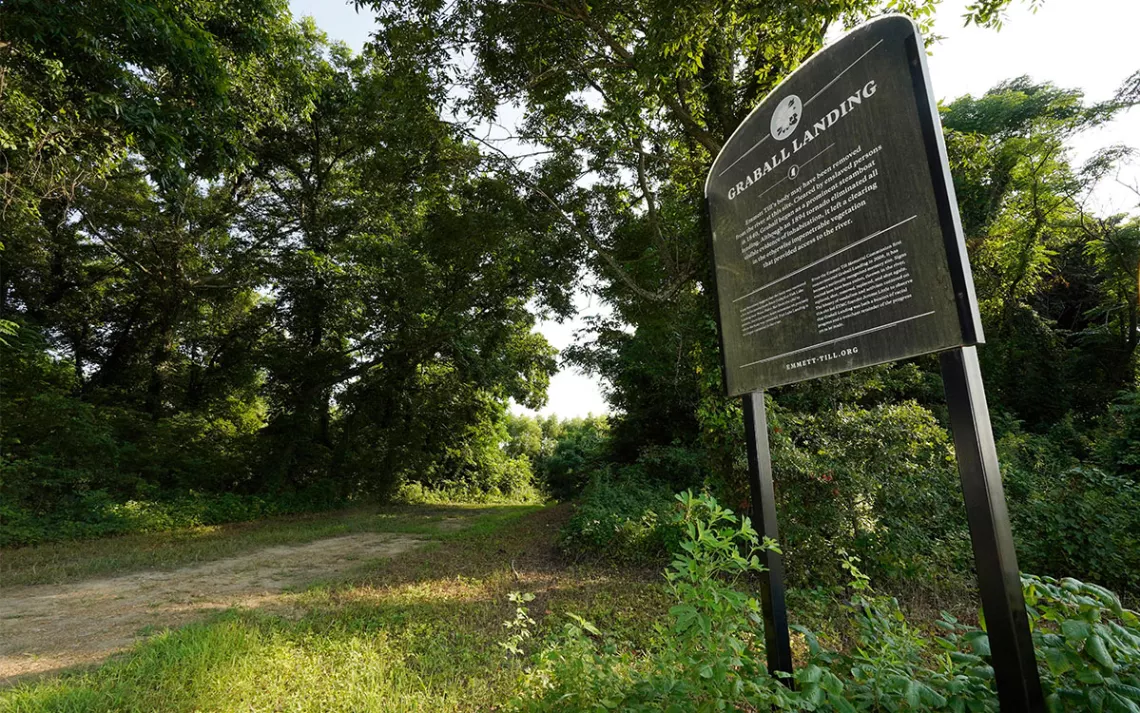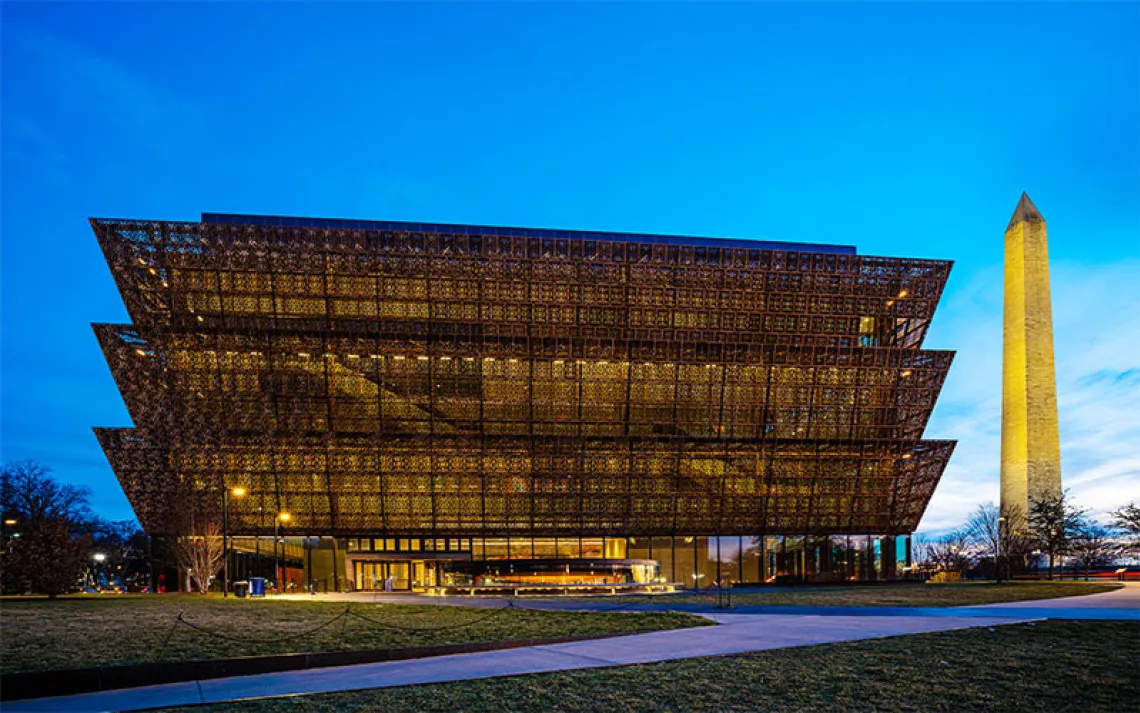Biden Designates National Monument Sites Honoring Emmett Till
Till’s murder helped to spark the modern American civil rights movement

A memorial sign at Graball Landing, the spot where Emmett Till's body was pulled from the Tallahatchie River just outside of Glendora, Mississippi. | Photo by Rogelio V. Solis/AP
President Biden on Tuesday delivered on a civil rights movement aspiration by using his authority under the Antiquities Act to dedicate a national monument to Emmett Till, the young Black man who was just 14 when he was murdered in 1955 by a group of white supremacists. The monument, which honors both Till and his mother, Mamie Till-Mobey, is spread across three sites that commemorate the life and tragic death of a leading figure in American history and the fight against racism.
One monument site is in Chicago’s Roberts Temple Church of God in Christ, where Till’s funeral was held. The other two are in Tallahatchie, Mississippi, where Till was murdered—with the first along the Tallahatchie River, where Till's body was found, and the second at the courthouse where the trial took place.
“Today we join together as I sign a proclamation designating Emmett Till and Mamie Till-Mobey National Monument in both Illinois and in Mississippi,” Biden said to applause during the signing ceremony. “At a time when there are those who seek to ban books, bury history, we’re making it clear, crystal clear. . . . We should know about our country. We should know everything—the good, the bad, the truth of who we are as a nation. That’s what great nations do, and we are a great nation.”
At the White House event, Vice President Kamala Harris, the first Black vice president, said, “Let us not be seduced into believing that we will somehow be better if we forget. We will be better if we remember. We will be stronger if we remember. . . . It is only by understanding and learning from our past that we can continue to work together to build a better future.”
Till was visiting family for the summer when he was accused of offending a white woman, who was working in a local store, as he was buying candy. The woman's husband and his half-brother abducted Till from his uncle's home, tortured him in a shed, and then shot him, before dumping his body. He had been so badly mutilated that officials could only identify his body by a ring he wore that had his initials inscribed on it. The subsequent funeral and trial, where both adult murderers were acquitted after only an hour, are largely seen as catalyzing the modern civil rights movement, including setting the stage for the Voting Rights Act, which was passed a decade later. Mamie Till-Mobey famously insisted on having an open casket to show the world what the violence of the Jim Crow–era South had done to her son. With 100,000 mourners in attendance and media coverage across the country, Till’s funeral was a wake-up call to the rest of the United States.
Efforts to honor Till have been in the works for years. In 2007, several congressional leaders, including the late Representative John Lewis, the Democrat from Georgia, sponsored a bill called the Emmett Till Unsolved Civil Rights Crime Act, which made it easier for federal, state, and local law enforcement agencies to collaborate on cold cases, especially those going back to the Civil Rights era. The bill became law in 2009. The Federal Bureau of Investigations reopened Till's murder case twice, once in 2004 and again in 2021, after it came to light that the woman who accused Till of whistling at her possibly admitted to lying about what had sparked the murder. Last year, President Biden signed the Emmett Till Antilynching Act into law, which made lynching a federal hate crime. A nine-foot bronze statue of Till was unveiled in Greenwood, Mississippi, later that year.
The effort to designate a national monument in Till’s honor has also been ongoing for some time, with the National Park Service initiating a review of potential monument sites in Mississippi in 2017. The call to protect these sacred spaces got its biggest boost earlier this year when Illinois senator Tammy Duckworth introduced legislation that would have designated the church where Till's funeral was held as a national monument. Conservation groups have used the hashtag #ParkForTill to advocate for protected spaces that pay tribute to the legacy of Till and his mother. With this new designation, much of the work and time put into honoring Till's life are coming to fruition.
"This new national monument is the physical evidence and a living testimony to the legacy of one family whose unimaginable tragedy led our nation one step closer to the arc of justice,” Brent Leggs, executive director of the African American Cultural Heritage Action Fund and senior vice president of the National Trust for Historic Preservation, told the Washington Post. “We encourage the world to learn from this history, reckon with what caused harm, and continue the work to prevent the same trauma from ever happening again.”
This was President Biden’s fourth national monument designation. Had Till still been alive, Tuesday would have been his 82nd birthday.
 The Magazine of The Sierra Club
The Magazine of The Sierra Club







